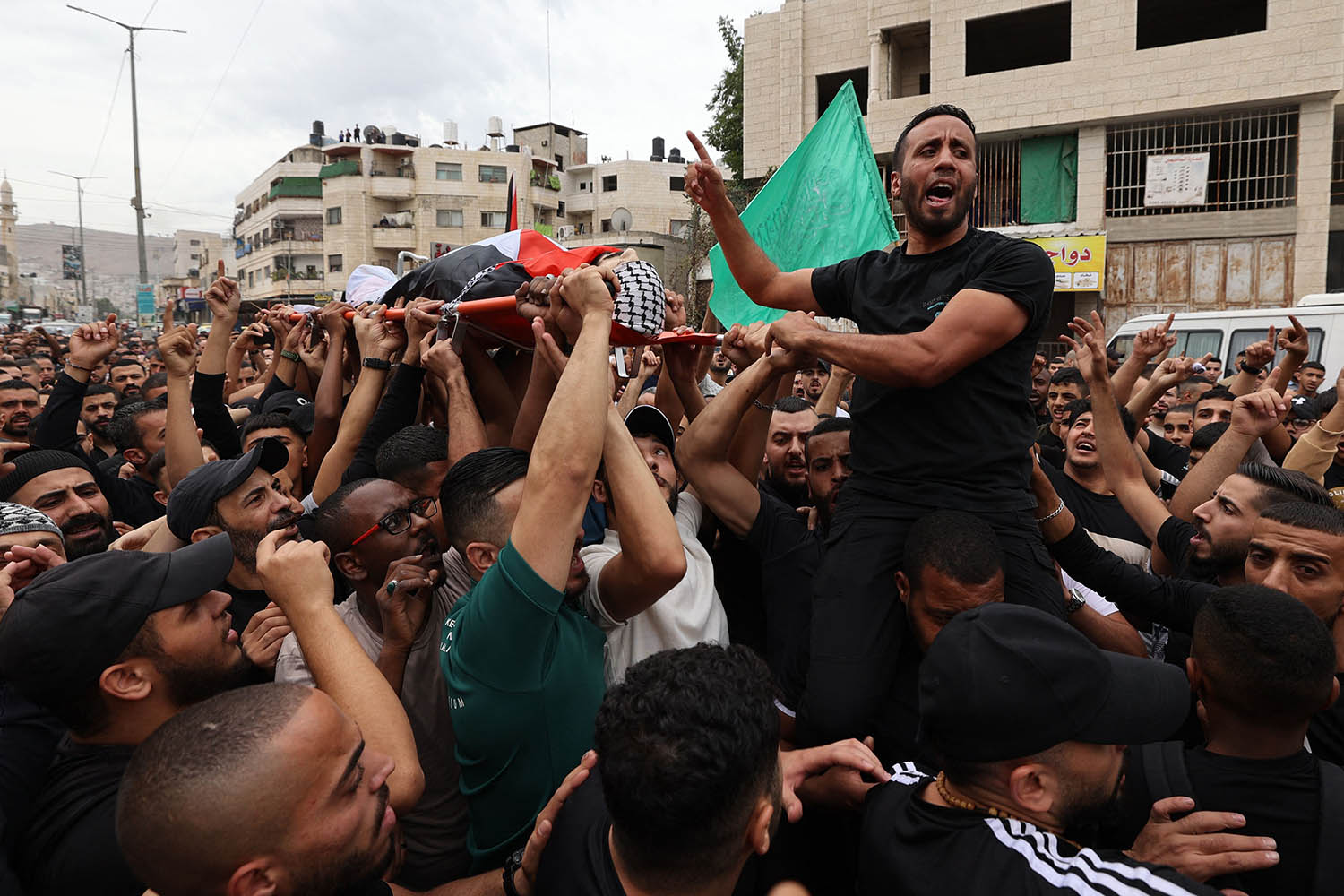
The Palestinian authority’s grip weakens as attacks by the Israeli military and settlers plunge the territory into chaos
Family members said a Palestinian man was shot dead by Israeli settlers while working with his family in an olive grove at the weekend. The killing brought the total by settlers and soldiers to 110 since 7 October, and followed an appeal by Palestinian Authority President President Mahmoud Abbas for an immediate ceasefire in Gaza.
So what? Abbas can speak, but almost no one is listening. The 87 year-old who has presided over the PA since 2005 is weak and unpopular, having sabotaged several opportunities for local elections to find a successor. He also has tumultuous relations with Hamas, now writhing under Israeli ordnance in Gaza. After Hamas won elections in 2006, its armed wing and that of Abbas’s Fatah party waged intense street battles for months across Gaza, and ever since, all attempts to reconcile have faltered.
The tarnished Fatah / Abbas brand is a defining feature of the Palestinians’ desperate situation.
- More than 80 per cent of Palestinians want Abbas to step aside and make room for a new leader.
- Abbas’s muted response at the beginning of the Gaza war angered Palestinians in the West Bank watching their compatriots get bombed by Israeli air strikes.
- As the death toll in Gaza rose, Abbas was forced to make his symbolic ceasefire appeal. But after meeting US Secretary of State Antony Blinken in Jordan, he had already angered many Palestinians by saying Hamas does not represent them.
West Bank violence. Since 7 October, Israeli soldiers and armed settlers have killed at least 114 Palestinians, making it the West Bank’s deadliest period in at least 15 years.
- Israeli forces have been carrying out almost daily raids in the West Bank, rounding up mostly Palestinian men, some of them members of Hamas, many others not. So far, 1,400 have been detained.
- In Occupied East Jerusalem, Israeli authorities have either been closing the doors to the Al-Aqsa mosque, where Muslims pray, or only allowing men and women of a certain age (usually the elderly) to enter the compound.
- Israeli authorities are seeking to prevent any display of Palestinian identity, including raising flags or carrying pictures of watermelons, which have become a symbol of solidarity.
- This includes posting on social media platforms. Dalal Abu Amneh, a Palestinian citizen of Israel, was detained and kept in solitary confinement for two nights after publishing a post on Instagram that Israeli authorities deemed as “promoting hate speech” – a Palestinian flag emoji with the words “There is no victor but God”.
Settler attacks. The Israeli human rights group B’Tselem says armed settlers have been increasing their attacks on Palestinian communities across the West Bank, often escorted by soldiers. In the village of Qusra, six people were shot by settlers and soldiers on 11 and 12 October. The last two fatalities were shot while attending a funeral for four men killed earlier. No one has been taken into custody or charged with their murder.
Popular Anger. As Palestinians bury their dead, waves of anger have been sweeping through the West Bank. There were demonstrations after the destruction of a hospital initially blamed on Israel, but much of the anger is directed against Abbas. Protesters have thrown chairs and other items at PA security forces, who lobbed teargas and stun grenades back.
The mood in Ramallah oscillates between charged and cautious. On days when political factions call for a commercial strike in solidarity with Gaza, the city known for its bustle turns into a ghost town. Shops shutter their doors, and children turn to online learning. On other days, fear fills the air as people remember a 2002 Israeli invasion that destroyed much of the West Bank’s infrastructure and left many people dead. A repetition of that invasion is the spectre in people’s minds as they clear out grocery store shelves, anticipating another stretch of long days being trapped inside due to an army curfew which may or may not come.
Dalia Hatuqa is a multimedia journalist specialising in Israeli/Palestinian affairs who divides her time between the US and the West Bank. Her work has been published in The Washington Post, Time, The Economist, Foreign Policy and elsewhere.










